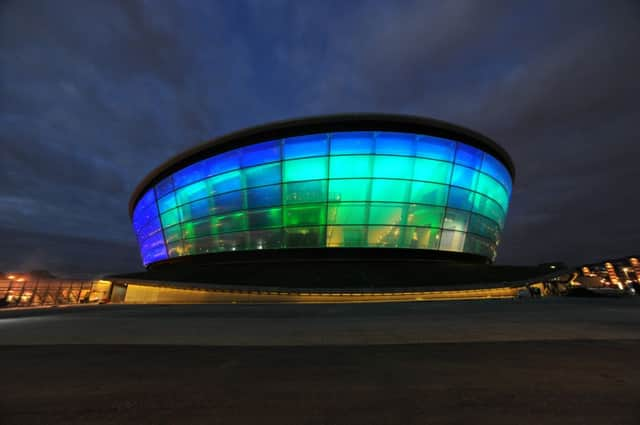Glasgow Hydro E.coli caused by undercooked burgers


It occurred in February this year, just after the entertainment hub opened in September last year.
Investigators blamed inconsistent cooking practices, temperature monitoring and inappropriate cleaning regimes at a burger outlet in the venue.
Advertisement
Hide AdAdvertisement
Hide AdPublished by the Public Health Protection Unit of NHS Greater Glasgow and Clyde, the report said that 19 of the cases, all of whom were male, ate beef burgers at the SSE Hydro between 17 and 19 January. The remaining three individuals, all female, were “household contacts of these primary cases.”
The majority of those affected were said not to be “severely unwell”, but three individuals required hospital treatment, nine had to take time off work or education, and one person was forced to take a “prolonged absence from the workplace.”
The report said that the investigation uncovered evidence “strongly suggesting the possibility of processing errors leading to undercooking as well as the potential for cross contamination in the preparation and serving of the beef burger products.
“These processing errors would provide plausible mechanisms for exposure to VTEC (a strain of E coli).”
It added that while the E. Coli outbreak was “sizeable”, it had been “fortunate that the number of individuals affected was not larger given the nature of the venue.”
This was said to be down to the strain of E. Coli and the age range of those affected.
The bug can be transmitted to humans via contaminated food or water, direct or indirect contact with the or environments of contaminated livestock, or direct transmission from an infected human to another.
VTEC is a highly infectious strain and requires only only a small number of bacteria required to cause infection.
Advertisement
Hide AdAdvertisement
Hide AdThe investigation revealed that all of the primary cases had eaten burgers bought at the Big Grill, a food outlet within the Hydro.
It was found that in the preparation of the burgers the searing of the meat was uneven, with some appearing to be well-seared while others “were barely seared with pink raw meat visible on the surface of the burger.”
Inspectors observed inadequacy of temperature monitoring records and weaknesses in temperature monitoring of food to test how cooked items were by staff.
It was also discovered there was “an inappropriate cleaning and disinfection regime, and an absence of documented evidence of a hazard analysis” at the venue.
Dr Catriona Miloševi, NHSGGC Consultant in Public Health Medicine and co-author of the outbreak report, said: “The outbreak provides a reminder of the potential for E.coli O157 contamination of beef products and of the need for adequate cooking and cross-contamination measures in the preparation of these products – especially minced meat products such as burgers which should be thoroughly cooked.”
She added that staff at the company which operates the burger outlet had been “helpful and co-operated fully” and the investigators were “satisfied that they have made the required improvements to their processes.”
Since opening, the £125 million venue is said to be the fifth busiest entertainment venue in the world, aiming to attract one million visitors every year. The facility has a capacity of 13,000 seats, with five main food outlets within the Hydro.
SEE ALSO
http://www.scotsman.com/news/health/glasgow-hydro-e-coli-cases-being-investigated-1-3288783|Glasgow Hydro E.coli cases being investigated|Link to article}